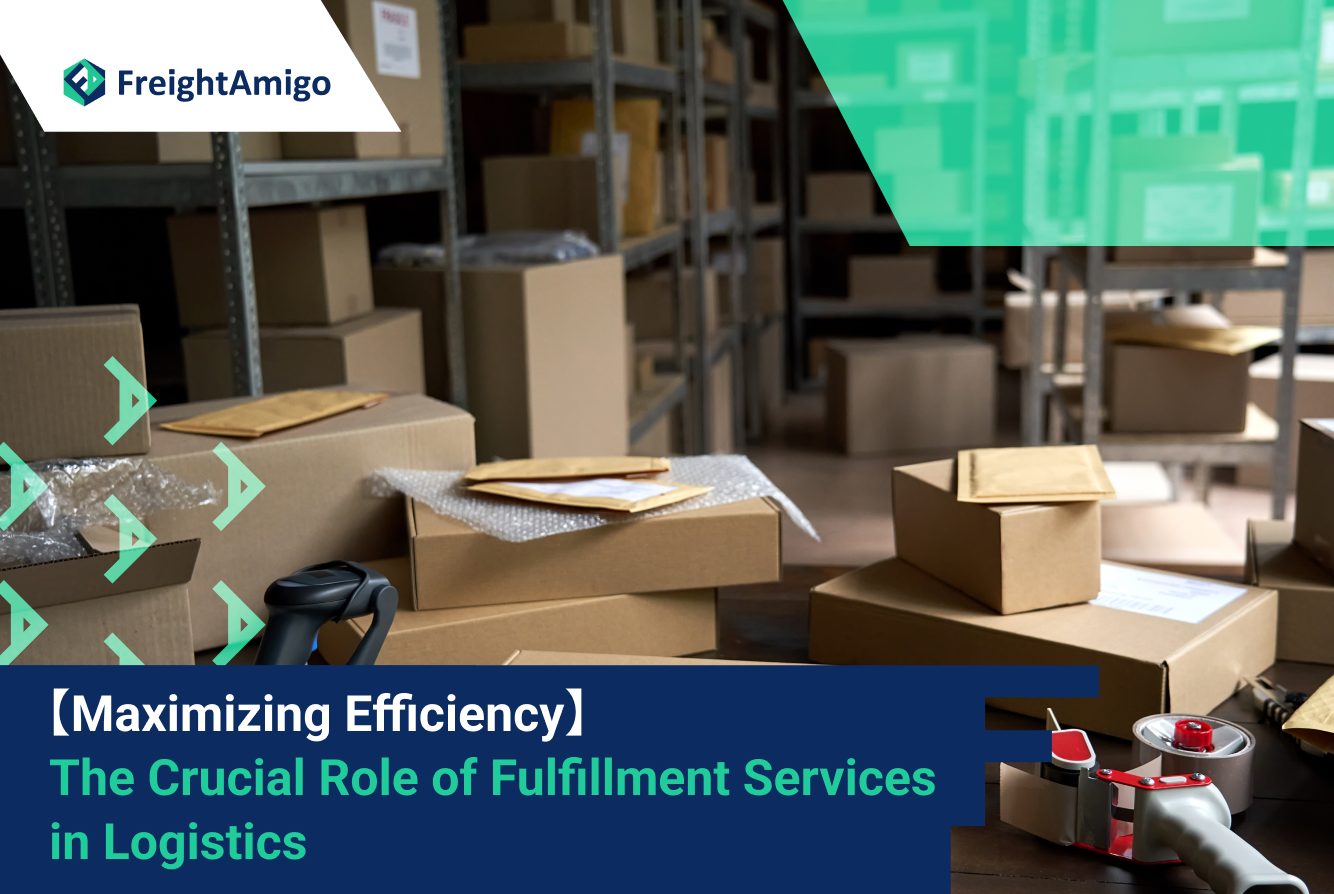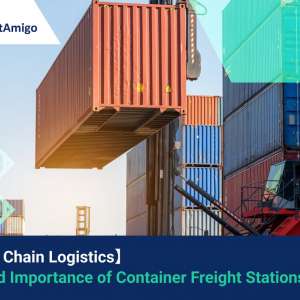Author Name: Tiffany Lee – Marketing Analyst at FreightAmigo
Introduction to Fulfillment Services
The world of commerce has dramatically evolved with the rise of digital technology, bringing to the fore a crucial component known as fulfillment services. Essentially, fulfillment services involve the process of receiving, processing, packing, and delivering orders to customers. This process is more than a simple transaction; it’s a key element in the overall customer experience, defining the efficiency and reliability of a business.
Fulfillment services aren’t restricted to large enterprises. Small and medium-sized businesses are also leveraging these services to reach a larger audience and provide efficient, prompt delivery. This rapidly growing sector is driven by the demand for efficient, seamless shopping experiences that meet and exceed customer expectations.
In this era of immediacy, customers expect quick, reliable, and efficient delivery of their purchases. Therefore, businesses must step up to meet these expectations, and fulfillment services are the perfect solution. By outsourcing fulfillment operations, businesses can focus on their core competencies, leaving logistics to the experts.
Want To Compare The Best Express, Air Freight, Sea Freight, Rail Freight & Trucking Rates So As To Have Better Control On Cost?
Understanding the Role of Fulfillment Services in Logistics
Fulfillment services play a pivotal role in logistics, acting as the bridge between businesses and their customers. They handle the physical aspects of e-commerce transactions, including storage, packaging, and shipment. Fulfillment services are the cog that keeps the wheels of logistics turning smoothly and efficiently.
In a broader sense, logistics is all about planning and executing the efficient transportation and storage of goods from the point of origin to the point of consumption. Fulfillment services breathe life into this definition by ensuring that goods are stored properly, packaged securely, and delivered promptly. They also take care of returns and exchanges, further enhancing customer satisfaction.
Moreover, fulfillment services utilize advanced technology to track and manage inventory, ensuring that stock levels are maintained and that orders are fulfilled accurately. They also provide valuable data and insights that can be used to predict customer behavior and streamline operations. In essence, fulfillment services are the backbone of a successful logistics operation.
The Importance of Fulfillment Services in E-commerce
The meteoric rise of e-commerce has made fulfillment services more important than ever. With the click of a button, customers can order products from anywhere in the world, and they expect these products to be delivered to their doorstep quickly and efficiently. This is where fulfillment services come in.
Fulfillment services are the key to meeting these customer expectations. They manage the entire order fulfillment process, from warehousing and inventory management to packing, shipping, and handling returns. This comprehensive approach ensures that e-commerce businesses can deliver a high-quality customer experience, regardless of their size or location.
Moreover, fulfillment services allow e-commerce businesses to scale rapidly. By outsourcing logistics operations, these businesses can expand their reach without worrying about storage space, staffing, or logistics management. They can also adapt to seasonal fluctuations and market changes more easily, making fulfillment services a crucial component of e-commerce success.
Key Components of Ecommerce Fulfillment
Ecommerce fulfillment is a multi-faceted process that involves several key components. First, there’s inventory management. This involves tracking and managing stocks, ensuring that products are available for sale and that orders can be fulfilled promptly. Sophisticated software is often used to automate this process, reducing errors and improving efficiency.
Next, there’s order processing. This involves receiving orders, picking the right items from the inventory, packing them securely, and preparing them for shipment. Speed and accuracy are crucial here, as any mistakes can lead to customer dissatisfaction and potential loss of business.
Finally, there’s shipping and delivery. This involves getting the packed orders to the customers as quickly and efficiently as possible. It also involves managing returns and exchanges, a crucial aspect of customer service. All these components must work together seamlessly to ensure a smooth, efficient ecommerce fulfillment process.
How Fulfillment Services Enhance Efficiency in Logistics
Fulfillment services enhance efficiency in logistics in several ways. Firstly, they help businesses save time and resources. By outsourcing logistics operations, businesses can focus on their core functions, such as product development, marketing, and customer service. This not only improves overall efficiency but also leads to higher customer satisfaction and loyalty.
Secondly, fulfillment services improve inventory management. They use advanced technology to track and manage stocks, ensuring that products are available when needed and that orders are fulfilled accurately. This reduces the risk of stockouts and overstocks, both of which can hurt a business’s bottom line.
Thirdly, fulfillment services speed up the order fulfillment process. They handle all aspects of this process, from receiving orders to packing and shipping, ensuring that customers receive their purchases quickly and efficiently. This enhances the customer experience and boosts a business’s reputation.
Steps to Maximize Efficiency with Fulfillment Services
To maximize efficiency with fulfillment services, businesses should first choose the right service provider. This involves evaluating potential providers based on their expertise, technology, scalability, and customer service. It’s important to choose a provider that understands the business’s needs and can deliver on its promises.
Next, businesses should integrate their systems with the provider’s platform. This ensures that orders, inventory data, and other information flow seamlessly between the two, reducing errors and improving efficiency. It also provides valuable insights that can be used to optimize operations.
Finally, businesses should monitor the performance of their fulfillment services provider regularly. This involves tracking key metrics like order accuracy, delivery speed, and customer satisfaction. If any issues arise, they should be addressed promptly to ensure that the service continues to meet the business’s needs and expectations.
Conclusion: The Future of Fulfillment Services and Logistics
The future of fulfillment services and logistics is bright, with advancements in technology and growing consumer expectations driving the industry forward. As e-commerce continues to grow, the demand for efficient, reliable fulfillment services will only increase.
Moreover, the rise of AI and machine learning promises to revolutionize the industry, with smarter inventory management, predictive analytics, and automated order processing becoming the norm. This will further enhance efficiency and customer satisfaction, cementing the role of fulfillment services in the world of commerce.
As businesses strive to meet and exceed customer expectations, fulfillment services will continue to play a crucial role in their success. By maximizing efficiency and enhancing customer satisfaction, these services are not just a valuable asset; they’re an essential part of the modern logistics landscape.
There Are Different Options For Cargo Transportation. If You Want To Choose The Most Convenient And Suitable Solution, It Is Best To Have The Full Support Of Logistics Experts! If You Are Planning To Ship Goods Overseas, Please Go To The FreightAmigo Page For Inquiries.
===
Read More:
【Logistics News】Singapore to Sign Declaration on Green Shipping Corridors
FreightAmigo Won Startup Grand Award In TechChallenge — Digitising Trade Finance
Sailing Schedule: Streamlining Logistics Operations for Efficient Shipments
===
If you have any inquiries on logistics/supply chain, feel free to contact FreightAmigo now:
Chat with us online OR
Phone : +852 28121686
WhatsApp: +852 27467829









































